Kogan vs Snowbiggee; UP Moet; Big Moment in Holborn; Phone or No Phone; Nostalgia and Fear; Addicted to scale; Big Sport and the Trump Slump; Baller Balls; Modi right klaxon
Overthinking the sports business, for money
Big Moments in Holborn
A feisty hour and a bit was spent at Sports Industry Award headquarters in London’s busy West End this week, as Unofficial Partner chaired the judging panel for the new FEVO SIA Business Moment of the Year category - ensuing podcast out next week.
Scudamore, Wray, Noble, Keller. Judging just doesn’t get more judgemental.
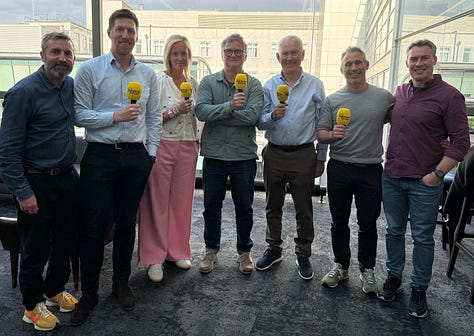
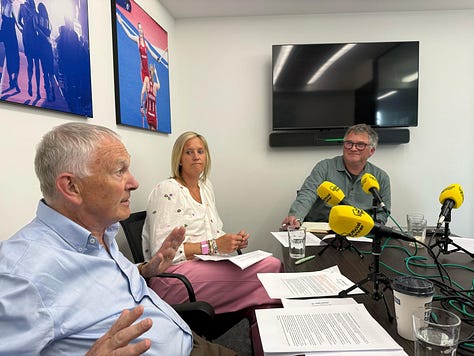
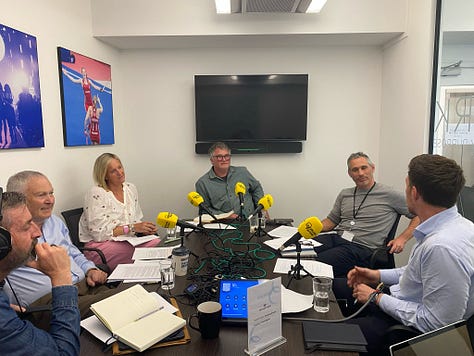
And there’s more.
Have one on UP
In an unprecedented show of generosity, sports award impresario Nick Keller has offered a deal for all Unofficial Partner subscribers.
An actual free bottle of fizz for your table.
Book here and quote UP2025 to claim the prize.
Fighting The Scroll
Every spring, The Masters provokes an anti-phone trope that is shared across…social media.
It’s about phones at sports events.
This thread mixes two potent elements - nostalgia and fear.
Nostalgia for an imagined past in which we lived our lives entirely in the moment.
And fear of what the doom scroll has done to our brains.
Solution: ban phones from sports events…
This sort of thing happens a lot, where sports organisations are asked to ‘take a stand’ against something; to lead rather than follow when there’s no political appetite to make things illegal - betting, smoking, eating crisps and drinking.
Definition of sports marketing: appearing morally superior whilst taking the money.
Now we’re adding ‘looking at your phone’ to the list of topics about which sport should make difficult decisions.
(UP Rule: beware marketing people talking about bravery).
So, ban phones or don’t - but remember, The Masters is sports’ most famous outlier. It’s almost perversely unique in several ways, from sandwich prices to TV rights negotiations. (See previous: Fleecing Rich White Men: Marketing Lessons from The Masters)
The Masters is now viewed as a massively successful case study in brand management, a triumph of long-term thinking over short-term cash. In a sport bedevilled by a tedious diet of back-to-back 72-hole stroke play events, this 72-hole stroke play event stands out from the crowd by giving the winner his own jacket, being on in the same place once a year and serving really cheap sandwiches.
The phone is a proxy for audience
Sports fans are part of the general population.
And we’re all addicted to phones.
Sport has played its role in creating that addiction by turning its content in to scroll fodder.
The other addicted community is the marketing industry, which can’t get itself off fake engagement metrics that have nothing to do with human enjoyment, or convenience, or the profits of anyone but the platforms themselves.
Hear: How Adtech Ruined the Internet UP129
Our guest was Dr Augustine Fou, an expert on ad fraud, which has been the bane of the digital marketing era, via ad tech and programmatic advertising.
Augustine Fou: ‘Marketers wanted scale, and are now addicted to it’
Ad fraud is about incentives, both corporate and personal.
A whole generation of marketers has been tricked to expect absurdly massive audiences for their digital campaigns.
And like a drug free sprinter, one day you turn around to find that if you’re not cheating you’re losing.
So before we slag off fans for taking photos…
Meet cute: Gen Z football meets a Sky Sports subscriber
Beyond the phone - People are moving…
Good news from the CEO of Sport England, via WhatsUP:
That link in full here
The Minister for Everything
David Kogan’s hat is now in the ring.
Mark Kleinman on Sky News:
A media industry veteran who has helped negotiate a string of broadcast rights deals across English football has emerged as the frontrunner to head Sir Keir Starmer's new football watchdog.
Sky News can exclusively reveal that David Kogan, whose boardroom roles have included a directorship at state-owned Channel 4, is now the leading contender to chair the Independent Football Regulator (IFR) following a drawn-out recruitment process.
A Whitehall source said Mr Kogan had been interviewed for the post by a government-appointed selection panel in the last few days.
He was expected to be recommended to the prime minister for the role, although they cautioned that the appointment was not yet guaranteed.
Mr Kogan has had extensive experience at the top of English football, having advised clients including the Premier League, English Football League, Scottish Premier League and UEFA on television rights contracts.
Last year, he acted as the lead negotiator for the Women's Super League and Championship on their latest five-year broadcasting deals with Sky - the immediate parent company of Sky News - and the BBC.
Outside football, he also worked with Premier Rugby, the Six Nations, the NFL on its UK broadcasting deals and the International Olympic Committee in his capacity as chief executive of, and majority shareholder in, Reel Enterprises.
Kogan joins Christian Purslow, Sanjay Bhandari and Sir Ian Kennedy as names mentioned previously as being in contention for the job.
Which gets us to the hard bit.
What is the job?
My head goes, as it often does, to David Davis MP.
There are two things I know about the former Brexit Secretary.
He was described as being 'as thick as mince’.
But he once inadvertently said something relevant to the job of football regulator.
David Davis: ‘We should not ask people to vote on a blank sheet of paper and tell them to trust us to fill-in the details afterwards’.
The subsequent Brexit vote was precisely this: a blank sheet of paper, upon which voters were encouraged to project their unhappiness, from ‘resentment of elites’ to the shape of their bananas.
Dominic Cummings and Vote Leave cynically presented Brexit as a beguilingly simple solution to myriad complex problems.
This is the worry about the football regulator: Whoever fills the role will never be able to deliver on the hopes of football fans.
A couple of years ago, Nick Harris took the bold step of asking football fans an open question:
What do you want from a regulator?
The answers were fascinating.
I’ve got a lot of sympathy for some of these ideas, but each has second order implications, both intended and unintended.
I suspect that when asked, football fans, like Brexit voters, will always find things to be unhappy about.
But the regulator - whoever that ends up being - will need to work to a very tight brief, not a blank sheet of paper.
And this will make them seem weak. Disappointment is baked in to the process.
Build: Will Kogan’s strong Premier League ties help or hinder?
If you were running the Kogan campaign, how would you deal with what we might call the snowbiggee question:
I’d run with something I stole from Janan Ganesh in the FT, who was writing a while back about something entirely unconnected to the regulator (my precis):
Globalisation is difficult for all individual countries.
Britain is better at it than most, but hates itself for doing it.
The Premier League is a world class product: 'the best British creation of my lifetime'.
Britain mistakenly thinks the Premier League is not to be celebrated but is a problem to solve, with regulation.
To foreigners, this is weird, and entitled.
They want to enrich themselves.
Living through communism, religious authoritarianism or colonial rule will do that.
Could work.
The Trump Slump
Trump was asked why tourism to the US was cratering since his inauguration.
He mentioned nationalism.
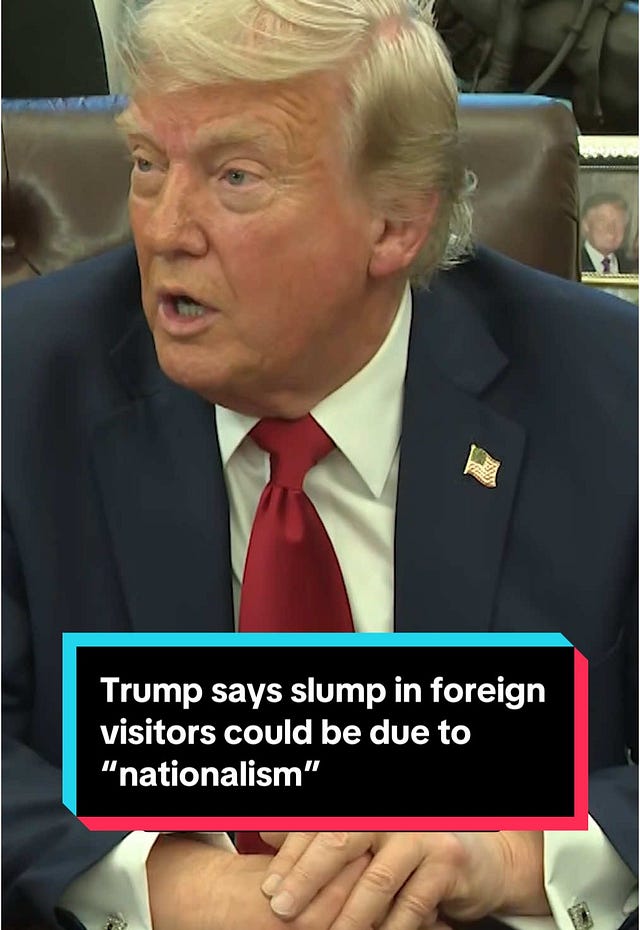
 Tiktok failed to load.
Tiktok failed to load.Enable 3rd party cookies or use another browser
As he mentions in the clip, America is a $2.36tn business, the world’s most powerful travel and tourism market.
Short term, Trump’s America will host global sport’s two big carnivals - FIFA World Cup 2026 and LA28. We’ll see if there’s any real impact on visitors for those events.
What about longer term?
Many major rights holders have made a big bet on America - football, cricket, rugby etc.
Is that still the smart assumption?
What of the major US sports back in to Europe? NBA Europe, NFL’s out of office games.
This gets to a question that lies beyond the current White House anti-world stance, meaning the Trump Slump chat may be an orange faced red herring.
International TV rights values can be oddly static, despite market pressure from the digital platforms who want sport to be global one ticket.
On our podcast, Lalit Modi was wrong about the final valuations of The Hundred franchises.
But he’s got a point when questioning media appetite for international product:
Lalit Modi: In a market that is flat, going from 5.7m (pounds) to 32m is again wishful thinking. Have they demonstrated that the sponsorship revenue is going up year after year? It isn’t. The guaranteed revenue is 5.7m, going to 6.3m next year. How are the jumps going to take place to get it to 32m? Then, you come to the major issue. They have 2.1m pounds today for international rights up to 2032, it constitutes about 47 per cent of the total revenue The Hundred is going to make. For the IPL, international rights are about 3 per cent. The NFL has a similar number, they have negligible international revenue. They say India is the Mecca for cricket. Yes, but for Indian cricket. People pay and watch Indian players. Then, they go on to say that the American rights are going to go up phenomenally. That’s not been proven for anybody, including the IPL. They’re saying the World Cup that took place is a demonstration of that. They’re saying the Olympics coming in will further demonstrate that. Let’s go back to the [T20] World Cup that just finished. Who watched that? Only India matches were watched. And that too India-Pakistan and some others. People are pegging their coats on the World Cup having done well. It hasn’t. India was participating and India made it to the final. You saw the debacle in the West Indies in 2007, when India were out. It had a major impact on the viewership and revenues. You cannot base your international rights on that.
Sport is local?






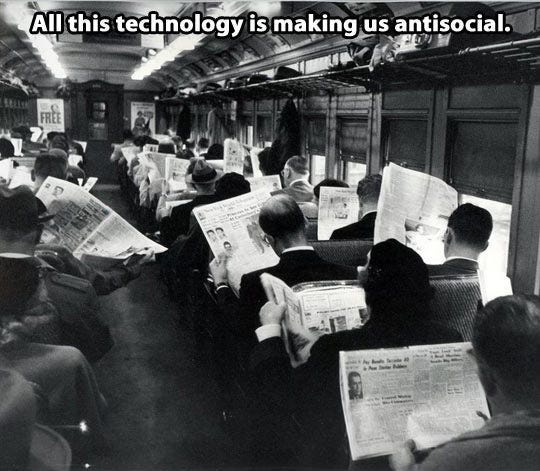


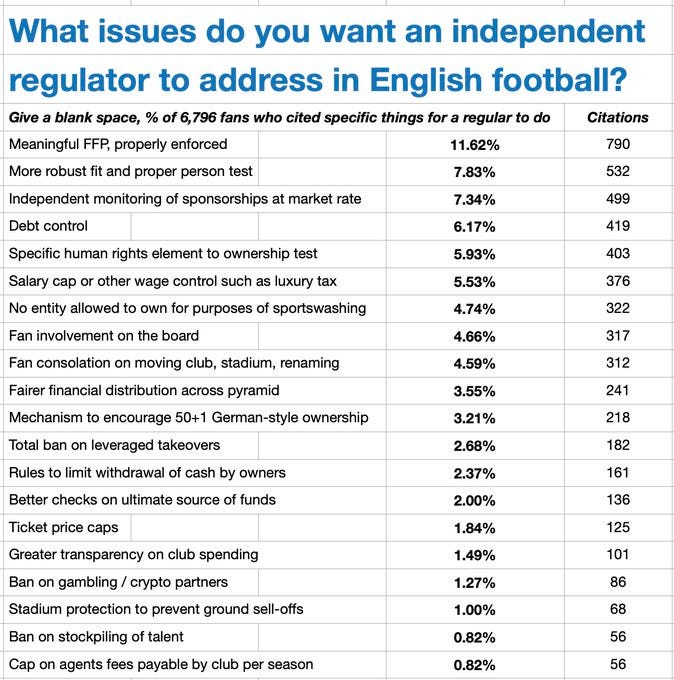

Another excellent read!